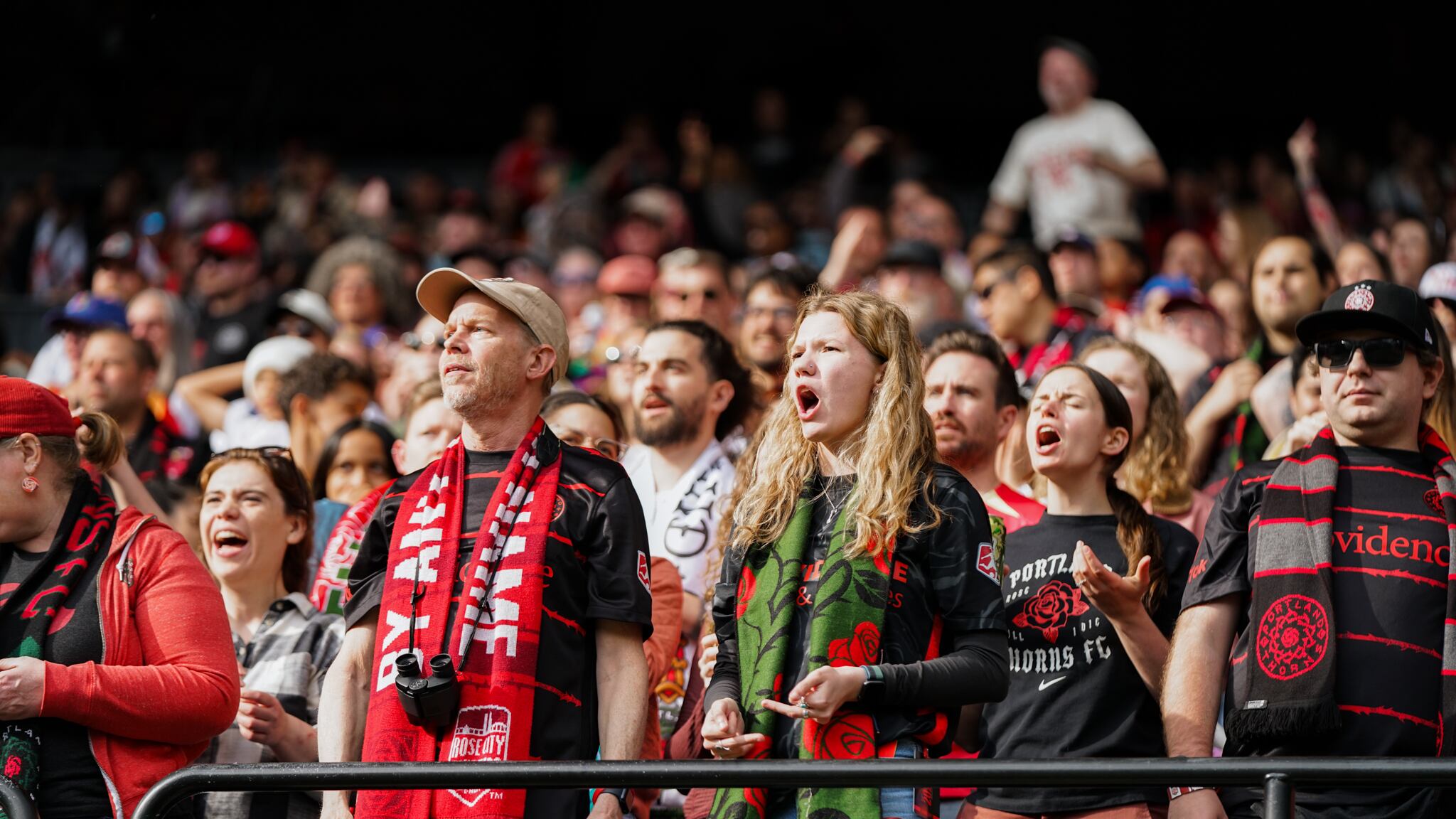The Portland Thorns are running around in circles.
As the Thorns near the end of their 2025 NWSL season, with six games to go, many of the talking points around the team are almost identical to those earlier in the year. Mostly: This is a transition year for the squad, which means a lot’s in flux. But the more things change, the more they stay the same. A couple games in, we began to see alarming trends; namely, the Thorns’ struggle on the road and in conceding early goals.
Twenty games into the season, that last narrative is still true.
“The biggest area of growth going into the second half of the season is our consistency,” Thorns co-captain Sam Coffey told me in July. “We want to be a consistently excellent team, and I think we have all the tools to do that.”
At the time, Portland was coming off their first back-to-back wins of the season heading into a month-and-a-half break in league play. They haven’t won two consecutive games since then.
The Thorns have conceded 17 of the total 23 goals scored against them in the first half of matches, with 12 of them coming in the first half hour. Portland has earned five of their eight wins at home at Providence Park this season, while four of their six losses have come on the road.
Their most recent match, a 1–1 draw against the Chicago Stars, felt like the same story. Portland opened the scoring on the road, off a brilliant Olivia Moultrie free kick in the 12th minute of play. They put together a solid defensive performance against a dangerous team, and successfully shut out leading Chicago goalscorer Ludmila.
Still, they conceded a goal in the first half. Bea Franklin’s 45th-minute shot in a crowded box is something that’s going to go in sometimes, defender Reyna Reyes said after the match. It’s still tough.
In other words: Instead of being consistently excellent, the Thorns are consistently inconsistent.
“The players have impressed me,” says supporter Mary Sue Renfrow, who’s been following the Thorns since their inaugural season in 2013. “What has not impressed me is the decisions of the coaches and of the general managers; there seems to be a disconnect between the two.”
Despite a clearly talented Portland roster, Renfrow says she doesn’t feel like the Thorns’ coaching staff knows how to channel that talent, nor does it feel like the coaching staff is getting support from the front office in player or coaching development.
She has a point. Questions should be asked about coaching and front office communication when the Thorns are signing players that head coach Rob Gale doesn’t know much about, as he said when Portland signed Canadian forward Mimi Alidou in March. And Gale is raising eyebrows with his management of player talent: For example, rookie Jayden Perry was playing full 90-minute matches early in the season and was suddenly relegated to the bench for the beginning of August, despite her being allegedly healthy and available to play.
Obviously, none of us is privy to every behind-the-scenes detail. We’re not dealing with the mental process of battling injuries throughout the season or adjusting to living in a new place or the demands of playing in the NWSL. But the little inconsistencies and apparent lapses in communication do make you wonder.
To be sure, it’s something of a victory that—on a team in transition that’s simultaneously been so impacted by long-term injuries and maternity leave—fans are enduring inconsistencies rather than disaster. The Thorns have realized many of the goals they set for themselves this season. They’ve given young players opportunities to shine, as we’ve seen from rookies Caiya Hanks, Pietra Tordin and Perry. They’ve built upon depth, allowing players like Mallie McKenzie minutes to grow in in-game scenarios. They’ve locked down key players like Sam Coffey through 2027.
A lot of new players have bonded into the club’s mentality without obvious seams showing, and we’re not fretting about the Thorns missing the playoffs for the first time since 2015. Could be worse.
Even so, it’s reasonable to hope that a growing team will learn how to meet specific challenges so we won’t feel like we’re talking about the little defensive missteps that lead to conceding an early goal every week.
I’m not sure if that comes down to coaching or the players or some weird trend in bad luck, but a constantly rotating defensive lineup throughout the season isn’t helping to build that stability. Nor is the array of excuses Gale finds after almost every goal scored against the Thorns—that Portland was still the better team, that there was a foul or poor refereeing in the play leading up to the goal. (I actually don’t mind him standing up for his players at press conferences, but I do think that has to come hand in hand with a nod to the reality that your team is conceding.)
“Partially, it’s energy,” Moultrie said after the Chicago draw. “Partially, it’s focus.”
After a win and a draw in back-to-back road games and in a three-way tie for third place in the league, the Thorns still need convincing results in their remaining three away matches if they want to secure a home playoff spot. It’s certainly not an impossible request for a team that seems determined to overcome every obstacle thrown their way—but neither does figuring out how not to concede early in matches.
There’s something to the talking points about rebuilding, and about the cyclical nature of a professional sports team. I’d just like to be able to talk about something else—the “building” part.
IN THE STANDINGS
1. Kansas City Current (50 points)
2. Washington Spirit (36 points)
3. NJ/NY Gotham (30 points)
4. Portland Thorns (30 points)
5. San Diego Wave (30 points)
6. Orlando Pride (29 points)
7. Seattle Reign (27 points)
8. Racing Louisville (26 points)
Top eight teams make the playoffs
NEXT MATCH:
VS. SAN DIEGO WAVE
7 pm Saturday, Sept. 20
Providence Park

